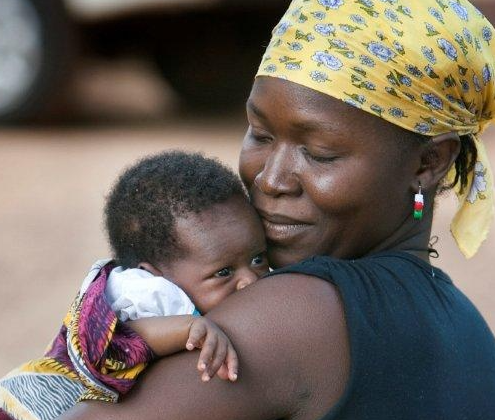Empowering Communities Through Health Education
The Pink & White Initiative addresses public health challenges and reduces health illiteracy across all ages and genders, with a special focus on vulnerable groups.

About Our Initiative
Founded in 2024 by Surajah Surajudeen-Bakinde, The Pink & White Initiative is committed to tackling health illiteracy and inadequate access to healthcare.
Empowering Through Education
We empower communities by addressing public health challenges and reducing health illiteracy across all ages and genders. Through essential health education, resources, and community-based programs, we strive to create healthier, informed populations.
A Healthier Future
We envision a world where every individual—regardless of age or gender—has access to accurate health information, essential resources, and the opportunity to lead a dignified and healthy life.
Inclusive Approach
Serving individuals across different life stages, ensuring everyone has resources to lead a healthy life.
Health Education
Providing essential knowledge on hygiene, nutrition, disease prevention, and reproductive health.
Community Support
Building networks of support through pad banks, mobile clinics, and educational workshops.
Our Programs
Comprehensive initiatives designed to address health illiteracy and improve well-being across communities.
Establishing 50 pad banks within three years, serving as hubs for health education on hygiene, reproductive health, and overall wellness.
Covering disease prevention, hygiene, nutrition, maternal and child health, reproductive health, and aging wellness.
Including menstrual health education for girls, basic hygiene for children, and wellness education for older adults.
Providing menstrual products, basic check-ups, wellness screenings, and health guidance for all age groups.
Advocating for tax-free hygiene products, comprehensive health education in schools, and improved healthcare access.
Building strategic partnerships with healthcare providers, educational institutions, and community organizations.
Target Beneficiaries
Our initiatives reach diverse populations with a focus on those most vulnerable.

Reaching Those in Need
Our programs are designed to reach individuals across all demographics, with special attention to those facing the greatest barriers to health education and resources.
Young Girls in Schools
Girls who struggle with accessing menstrual products, which can negatively impact their education.
Young Women
Women who face financial barriers to affording menstrual products.
Low-Income Families
Households with limited access to healthcare and educational resources.
Rural Communities
Areas with limited access to healthcare services and educational opportunities.
Affected by Stigma
Those dealing with cultural or social stigmas related to menstruation, helping to mitigate isolation and health risks.
General Public
Raising awareness and improving health literacy among everyone to foster a more informed and supportive community.
Get Involved
Join us in our mission to improve health literacy and well-being across communities. There are many ways to contribute to our cause.
Contact Us
Our Goals
Setting ambitious targets to create meaningful change in communities.
Short-Term (1-2 Years)
- •Establish pad banks in 30 communities.
- •Launch the first round of health literacy campaigns and workshops.
- •Implement school health programs in 10 schools.
- •Develop partnerships with 5 strategic organisations.
Medium-Term (3-5 Years)
- •Expand pad banks to 50 communities.
- •Reach 100,000 students with school health programs.
- •Launch mobile health clinics in 10 rural areas.
- •Conduct advocacy meetings with key policymakers.
- •Solidify long-term partnerships with NGOs and government agencies.
Long-Term (5-10 Years)
- •Ensure sustainable access to menstrual hygiene products across all targeted communities.
- •Scale health literacy campaigns to reach millions of women and girls nationwide.
- •Achieve policy changes, such as tax-free menstrual products and comprehensive health education in schools.